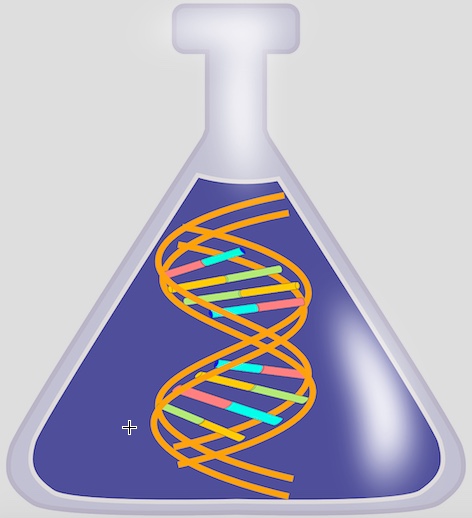Transhumanist position on human germline genetic modification
March 22, 2015

(credit: pixabay)
Recently a group of scientists and an industry group have issued statements calling for a moratorium on human heritable or germline genetic modifications (see here, here and here), now that we have the powerful CRISPR technique to pursue such modifications.
These statements have been greeted rapturously by bioconservatives, who want to see a global ban on germline and enhancement genetic therapies.
Of course, transhumanists have been thinking about these things for a long time, and the World Transhumanist Association (now known as Humanity+) adopted a formal position on human germline genetic modification 11 years ago.
The WTA/H+ statement embraces the desirability and inevitability of germline and enhancing gene therapies, while also calling for public financing of research and a regulatory process to ensure their safety. While the group that published a statement in Science called for a moratorium on applications of the technology until they are safe, the industry group Alliance for Regenerative Medicine went further to call for a ban on any research that could prove the safety of the techniques.
As the statement below suggests, the transhumanist (and technoprogressive) position is that any effort to ban research leading to such therapies, or the use of such therapies once they have been proved safe and effective, would be a violation of the rights to procreative liberty and bodily autonomy.
Position on Human Germline Genetic Modification
Adopted unanimously by the WTA Board of Directors December 24, 2004*
There is an urgent need for new policies to regulate research on and application of inheritable gene therapies. Inheritable genetic therapies will open up society to new forms of diversity and change, and require new thinking in risk regulation and human rights to avoid both the proliferation of untested and harmful therapies, and unnecessary bans that restrict reproductive rights.
Because of the sad history of eugenic authoritarianism in the 20th century, states must meet a high burden of evidence before interfering in the bodily autonomy and reproductive decision-making of parents. The principal grounds for such interference is society’s obligation to ensure that the clinical risks of new reproductive and genetic technologies are reasonable and well enough understood, so that parents can make informed decisions.
It is every parent’s obligation, and the obligation of society as a whole, to ensure that the next generation is as healthy, long-lived and able as possible. Given a commitment to procreative liberty, the best way to ensure that children benefit from genetic therapies is to provide parents with the information about their risks and benefits, and to ensure equitable access to the technologies, so they can give their children the best possible start in life.
Existing laws, testing regimes, and agencies that ensure the safety and efficacy of drugs should be expanded, where necessary, to encompass inheritable gene therapies. In the United States we support the Food and Drug Administration’s position that they have the authority to regulate the safety of human gene therapies and novel reproductive technologies such as cloning. No new agencies are required.
Nor should laws specify acceptable and unacceptable gene therapies based on distinctions of “therapy” versus “enhancement,” or on the basis of speculative long-term social impacts. The only basis for regulations of gene therapy are traditional clinical risk/benefit ratios for the subjects and their children.
We believe the Council of Europe should amend its “Convention for the Protection of Human Rights and Dignity of the Human Being” to acknowledge the legitimacy of germline therapies and enhancements within the context of individual and reproductive rights. We also believe international treaties to ban inheritable genetic modification and genetic enhancement would violate human rights, deny people their benefits, and make it impossible to regulate their safety.
The standards for the safety of inheritable genetic therapy should be no higher than the safety of unassisted reproduction. Multi-generational effects may be explored in animal trials, but human trials should not have to demonstrate a low risk of teratogenic effects beyond the first generation.
Genetic modifications that adults make on their own genetic material, both somatic and germline, should be approved on the basis of their safety for the adult subject, with appropriate informed consent about any teratogenic risks if modified genetic material is passed on to children. There should be no penalties for adults who knowingly modify their own reproductive cells, or for health care providers who have given adequate information about risks and benefits, even if that use is not approved as a therapy for the modification of sperm, eggs and embryos ex vivo.
There should be state funding of inheritable genetic therapy research in both animal and human trials. In the United States, the National Institutes of Health should reverse its ban on funding of inheritable gene therapy research. Funding policy should not distinguish between somatic or inheritable therapies, or “therapy” vs. “enhancement,” but should be based on the feasibility, safety and potential benefits of the treatment. There should be state funding for long-term prospective studies of the safety and impact on health of inheritable gene therapies. But there should not be a mandatory registry of the subjects of inheritable genetic therapies.
Finally, given the potential for genetic therapies to exacerbate inequality, we believe safe, beneficial genetic therapies should be made as universally accessible as possible. Highest priority should be placed on making universally accessible genetic therapies that provide intrinsic benefits [1, 2] — such as health, longevity and intelligence — as opposed to germinal choices and genetic therapies that do not provide intrinsic benefit, such as height and gender.
* On the WTA website it says 2005, but it was actually 2004
Reprinted from IEET with permission.
